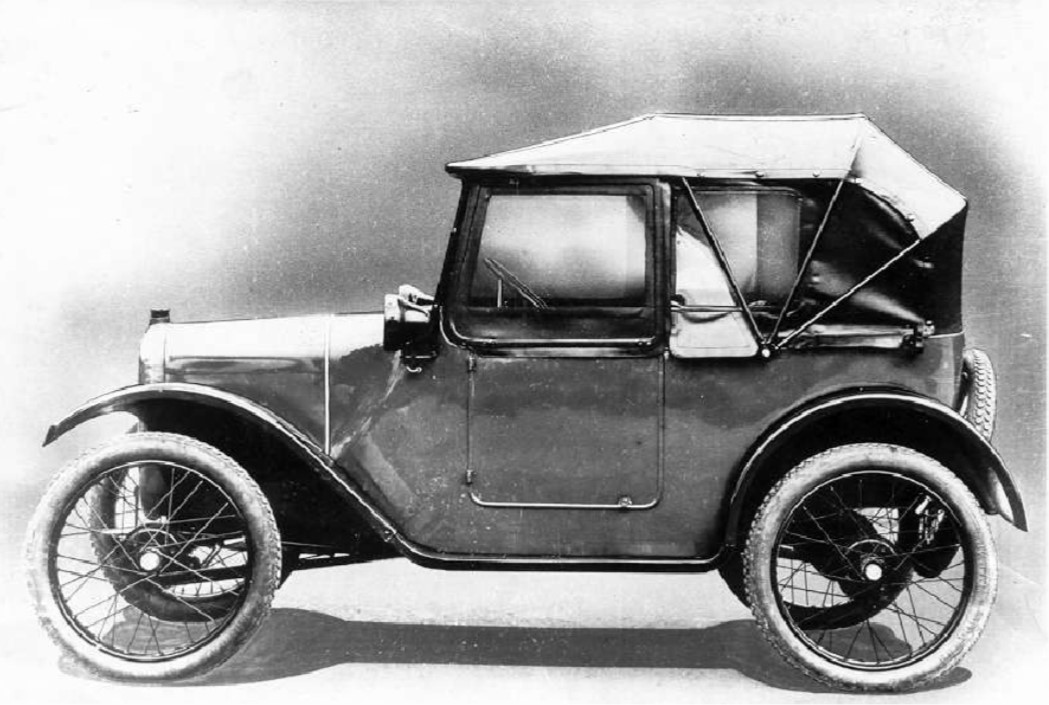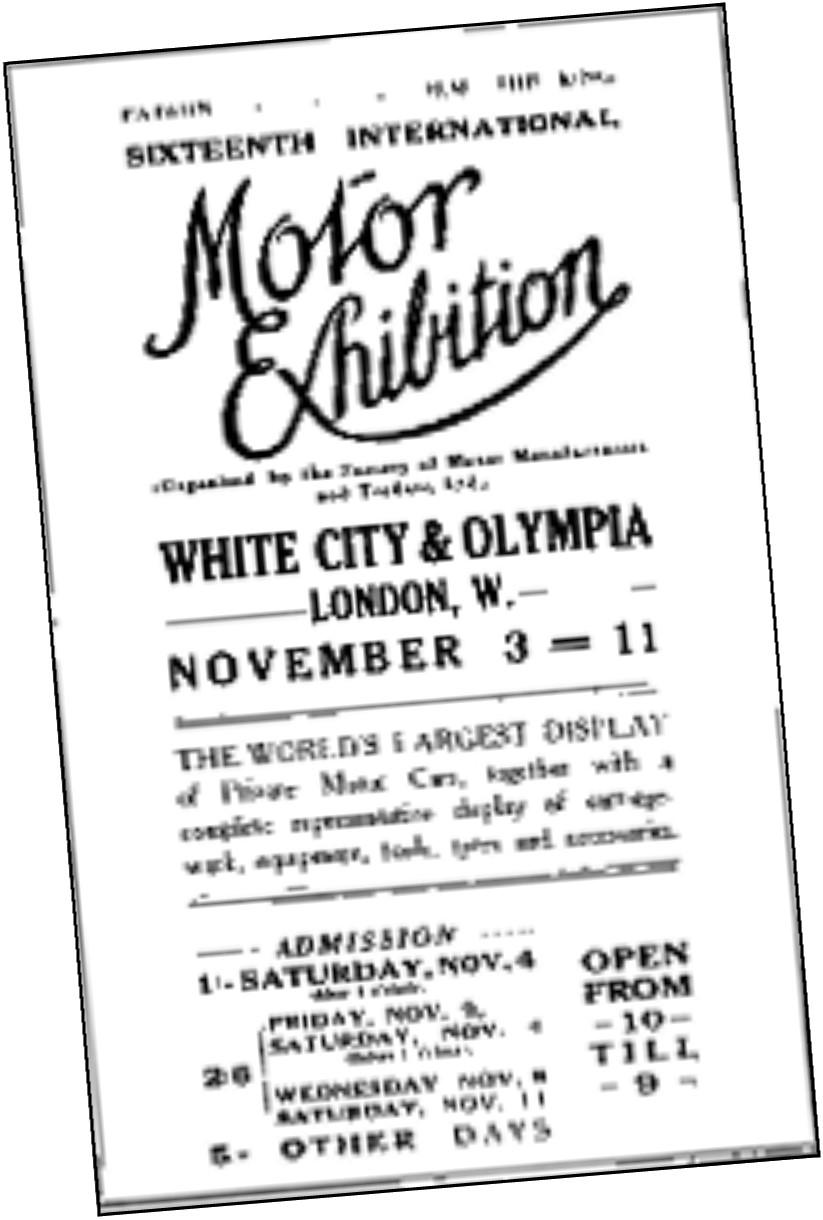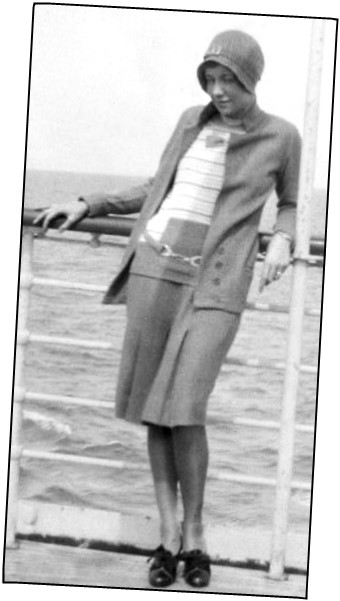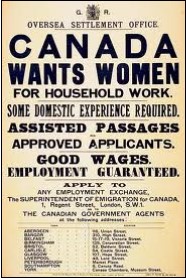Part 1—“In The Beginning ….. 1922”

Until
the First World War Austin built mainly large cars and immediately
afterwards introduced a massive 3.6 litre 20hp model in 1919. But by 1921 sales had slumped and in April the company was placed in receivership. Sir
Herbert responded by proposing that a smaller car would be more
popular, in spite of protestations from the company's board of
directors. Austin won them over by threatening to take the idea to
their competitor Wolseley and got permission to start on his design, in
which he was assisted by a young draughtsman called Stanley Edge who
worked from 1921 into 1922 at Austin's home, Lickey Grange. Austin put
a large amount of his own money into the design and patented many of
its innovations in his own name. In return for the investment he was
paid a royalty of two guineas on every car sold and nearly 2,500 cars
were made in the first year of production - not as many as hoped, but
within a few years the "big car in miniature" had wiped out the cycle
car industry and transformed the fortunes of the Austin Motor Co.
So the Baby Austin, as it was soon to be known, was thrown into the 1922 Motor Show at Olympia in the middle of the Roaring Twenties with its flappers, Art Deco, jazz with Louis Armstrong & Duke Ellington, the golden age of radio, modern art, the Charleston & the Black Bottom and, in America, Prohibition & Al Capone.
Songs in the hit parade included: Red Nic hols - After You've Gone; The Charleston Chasers - Wabash Blues;
Jack Hylton - There's One Little Girl Who Loves Me; Paul Whiteman–
Louisiana; Duke Ellington - Cotton Club Stomp; Jack Hylton - Button Up
Your Overcoat; The Savoy Orpheans - Five Foot Two, Eyes Of Blue; Joe
Venuti & Eddie Lang – Dinah; Frankie Trumbauer & Bix
Beiderbecke - Singin' The Blues.
hols - After You've Gone; The Charleston Chasers - Wabash Blues;
Jack Hylton - There's One Little Girl Who Loves Me; Paul Whiteman–
Louisiana; Duke Ellington - Cotton Club Stomp; Jack Hylton - Button Up
Your Overcoat; The Savoy Orpheans - Five Foot Two, Eyes Of Blue; Joe
Venuti & Eddie Lang – Dinah; Frankie Trumbauer & Bix
Beiderbecke - Singin' The Blues.
Who knows what King George V thought about all of this!
At that time:
1920 Automotive Products founded in London securing the licence to manufacture Lockhead hydraulic brakes throughout the world; The League of Nations comes into being; conscription abolished in Britain; separation of Northern and Southern Ireland; Ghandi becomes leader of India’s Indian National Congress; Olympic Games re-started in Antwerp after 8 years (100m won in 10.6 secs, GB gained 15 gold medals); Marconi opens first public broadcasting station in Britain; first performance of Gustav Holt’s “The Planets”; Rorschach devises his ink blot test; J T Thompson patents the Tommy Gun.
1921 Cars
taxed annually at the rate of £1 per RAC horsepower (HP = Diameter of
Cylinder in inches x Number of Cylinders) / 2.5; log books and tax
discs are required for the first time; a 6d duty on petrol abolished
bringing the price of a gallon of First Grade fuel down to 3s
5d.(£5.90!); a loaf of bread was 6d. (91p); British Legio
Cars
taxed annually at the rate of £1 per RAC horsepower (HP = Diameter of
Cylinder in inches x Number of Cylinders) / 2.5; log books and tax
discs are required for the first time; a 6d duty on petrol abolished
bringing the price of a gallon of First Grade fuel down to 3s
5d.(£5.90!); a loaf of bread was 6d. (91p); British Legio n founded;
Faisal becomes king of Iraq; D H Lawrence writes “Women in Love”;
Caruso dies; BCG tuberculosis vaccine developed; Einstein receives the
Nobel Prize for Physics; BBC founded; Chequers becomes the official
residence of the British Prime Minister.
n founded;
Faisal becomes king of Iraq; D H Lawrence writes “Women in Love”;
Caruso dies; BCG tuberculosis vaccine developed; Einstein receives the
Nobel Prize for Physics; BBC founded; Chequers becomes the official
residence of the British Prime Minister.
1922 Gandhi sentenced to 6 years imprisonment; King Constantine of Greece abdicates; Bonar Law becomes Prime Minister of Britain after a massive Conservative landslide; Mussolini forms Fascist government in Italy; T S Eliot writes the “Waste Land”; Galsworthy writes the “Forsyte Saga”; the Readers Digest founded; insulin administered for the first time; Victor Silvester becomes World Dancing Champion. The first full length feature film in colour (The Toll of the Sea); 1 USA Dollar worth 51d. (Hence 2/6 becoming known as ’half a dollar’); Alexandre Millerand president of France, Friedrich Ebert president of Germany & W G Harding President of the USA. The Austin 7 exhibited at the Olympia Motor Show in 1922 at £225 (£9,975 in today’s values) although the price was soon to be reduced. Other cars on show were: Armstrong Siddeley (£906), Swift 10hp (£275), Sunbeam 14hp Tourer (£685), Crossley 12/14 (£475), Humber 11/4 (£510), Daimler 10 hp (£230), Vauxhall 21 hp (£499), Armstrong Siddeley (£906), and the Morris Oxford (still ‘Bullnose’) at £816 & Cowley at £702.
1923 The number of vehicles on the road exceeds 1 million for the first time; Bonar Law dies replaced by Stanley Baldwin; London docks strike; first English FA Cup Final played at Wembley (won by Bolton Wanderers); Willy Messerschmitt builds an aircraft factory; “Yes We Have No Bananas” most popular song in Britain; Radio Times founded; Jack Dempsey wins World Heavyweight Boxing Championship. Calvin Coolidge became the new president of the USA.
David Whetton
So the Baby Austin, as it was soon to be known, was thrown into the 1922 Motor Show at Olympia in the middle of the Roaring Twenties with its flappers, Art Deco, jazz with Louis Armstrong & Duke Ellington, the golden age of radio, modern art, the Charleston & the Black Bottom and, in America, Prohibition & Al Capone.
Songs in the hit parade included: Red Nic
 hols - After You've Gone; The Charleston Chasers - Wabash Blues;
Jack Hylton - There's One Little Girl Who Loves Me; Paul Whiteman–
Louisiana; Duke Ellington - Cotton Club Stomp; Jack Hylton - Button Up
Your Overcoat; The Savoy Orpheans - Five Foot Two, Eyes Of Blue; Joe
Venuti & Eddie Lang – Dinah; Frankie Trumbauer & Bix
Beiderbecke - Singin' The Blues.
hols - After You've Gone; The Charleston Chasers - Wabash Blues;
Jack Hylton - There's One Little Girl Who Loves Me; Paul Whiteman–
Louisiana; Duke Ellington - Cotton Club Stomp; Jack Hylton - Button Up
Your Overcoat; The Savoy Orpheans - Five Foot Two, Eyes Of Blue; Joe
Venuti & Eddie Lang – Dinah; Frankie Trumbauer & Bix
Beiderbecke - Singin' The Blues.Who knows what King George V thought about all of this!
At that time:
1920 Automotive Products founded in London securing the licence to manufacture Lockhead hydraulic brakes throughout the world; The League of Nations comes into being; conscription abolished in Britain; separation of Northern and Southern Ireland; Ghandi becomes leader of India’s Indian National Congress; Olympic Games re-started in Antwerp after 8 years (100m won in 10.6 secs, GB gained 15 gold medals); Marconi opens first public broadcasting station in Britain; first performance of Gustav Holt’s “The Planets”; Rorschach devises his ink blot test; J T Thompson patents the Tommy Gun.
1921
 Cars
taxed annually at the rate of £1 per RAC horsepower (HP = Diameter of
Cylinder in inches x Number of Cylinders) / 2.5; log books and tax
discs are required for the first time; a 6d duty on petrol abolished
bringing the price of a gallon of First Grade fuel down to 3s
5d.(£5.90!); a loaf of bread was 6d. (91p); British Legio
Cars
taxed annually at the rate of £1 per RAC horsepower (HP = Diameter of
Cylinder in inches x Number of Cylinders) / 2.5; log books and tax
discs are required for the first time; a 6d duty on petrol abolished
bringing the price of a gallon of First Grade fuel down to 3s
5d.(£5.90!); a loaf of bread was 6d. (91p); British Legio n founded;
Faisal becomes king of Iraq; D H Lawrence writes “Women in Love”;
Caruso dies; BCG tuberculosis vaccine developed; Einstein receives the
Nobel Prize for Physics; BBC founded; Chequers becomes the official
residence of the British Prime Minister.
n founded;
Faisal becomes king of Iraq; D H Lawrence writes “Women in Love”;
Caruso dies; BCG tuberculosis vaccine developed; Einstein receives the
Nobel Prize for Physics; BBC founded; Chequers becomes the official
residence of the British Prime Minister.1922 Gandhi sentenced to 6 years imprisonment; King Constantine of Greece abdicates; Bonar Law becomes Prime Minister of Britain after a massive Conservative landslide; Mussolini forms Fascist government in Italy; T S Eliot writes the “Waste Land”; Galsworthy writes the “Forsyte Saga”; the Readers Digest founded; insulin administered for the first time; Victor Silvester becomes World Dancing Champion. The first full length feature film in colour (The Toll of the Sea); 1 USA Dollar worth 51d. (Hence 2/6 becoming known as ’half a dollar’); Alexandre Millerand president of France, Friedrich Ebert president of Germany & W G Harding President of the USA. The Austin 7 exhibited at the Olympia Motor Show in 1922 at £225 (£9,975 in today’s values) although the price was soon to be reduced. Other cars on show were: Armstrong Siddeley (£906), Swift 10hp (£275), Sunbeam 14hp Tourer (£685), Crossley 12/14 (£475), Humber 11/4 (£510), Daimler 10 hp (£230), Vauxhall 21 hp (£499), Armstrong Siddeley (£906), and the Morris Oxford (still ‘Bullnose’) at £816 & Cowley at £702.
1923 The number of vehicles on the road exceeds 1 million for the first time; Bonar Law dies replaced by Stanley Baldwin; London docks strike; first English FA Cup Final played at Wembley (won by Bolton Wanderers); Willy Messerschmitt builds an aircraft factory; “Yes We Have No Bananas” most popular song in Britain; Radio Times founded; Jack Dempsey wins World Heavyweight Boxing Championship. Calvin Coolidge became the new president of the USA.
David Whetton